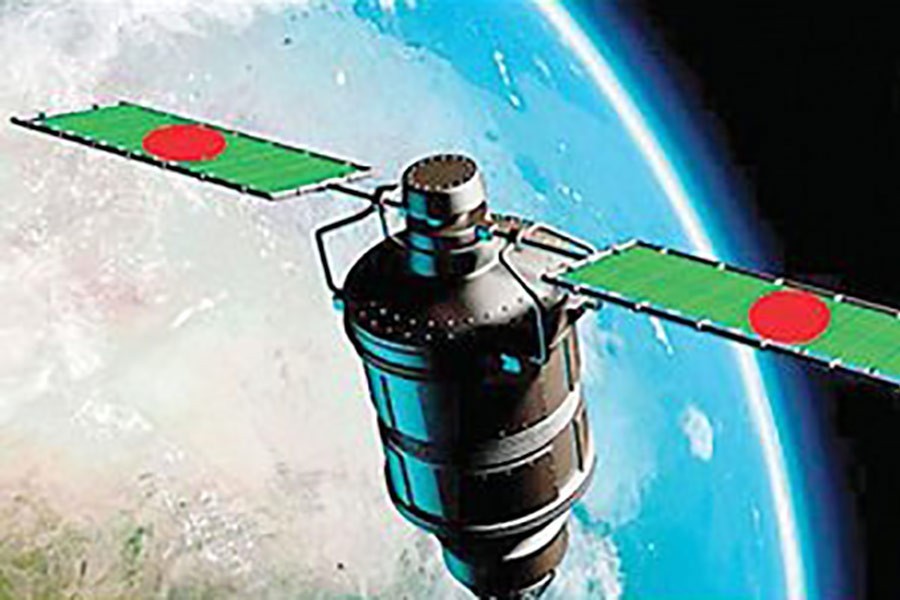Bangladeshis are deeply curious as much about Bangabandhu-1, which is set to ride to orbit early on Saturday, as they are about the commercial possibilities of their first satellite.
The government says the communication satellite will save as well as earn the country billions in foreign currencies.
Besides taking the internet to remote areas, the satellite is also expected to facilitate data and telecommunication services during emergencies and natural disasters and ensure national security, which the government thinks should not be measured in financial terms.
IT expert Sumon Ahmed Sabir said, “We should take the matter of pride more importantly than the commercial viability as Bangladesh is very much young in the satellite age. We have stepped into this era, though late.”
The government has formed Bangladesh Communication Satellite Company Limited (BCSCL) to operate the Tk 30 billion satellite.
Its Managing Director Md Saiful Islam said they have a workforce of 39 people now.
Facilities and barriers
Bangabandhu-1 is mainly a communication satellite.
State Minister for ICT Zunaid Ahmed Palak has said the satellite will provide three types of services: broadcasting, telecommunications and data communications.
The TV and radio stations operating in Bangladesh currently depend on satellites of other countries for broadcast.
According to Palak, the government is planning to dedicate half of the 40 transponders to the local TV station and the rest will be deployed to service the channels from other countries.
At present, Bangladesh spends $14 million a year on renting foreign satellites.
The government hopes to earn Tk 2.5 to 3 billion annually from the satellite and start making profit in six to seven years.
But 26 of the transponders are of Ku-band, with which it is difficult for TV channels to broadcast. The local TV stations are mainly interested in using the remaining 14 transponders of C-band.
Ekattor TV Managing Director and Chief Editor Mozammel Babu recently told a programme that it will be challenging for the Bangladeshi TV stations to use the satellite from its orbital slot longitude of 119.1° east.
IT Minister Mustafa Jabbar said the limitations of internet communication can be overcome in the remote areas where cable communication cannot be set up, once the satellite goes operational.
But there are some technological problems for which it will not be possible to use the entire frequency from the satellite.
The total capacity of its 40 transponders is 1600 megahertz, but Bangladesh will be able to use 1400 megahertz.
Using the frequency for the internet will also be costly.
IT expert Sumon said the commercial viability of the satellite depends entirely on what business strategy is adopted.
“Bangabandhu satellite will not cover all the areas, and so the local TV stations may not be interested in hiring its transponders. But it will be possible to rent the transponders to satellite companies that do not have coverage in the areas covered by Bangabandhu-1,” he said.
According to him, disruption in broadband internet service is common during natural disasters and the satellite would come in handy during these times of trouble.
He hoped the satellite will make it possible to launch telecom services in remote areas still out of coverage.
Two months to take control
It will take 10 days for completing the launch and early orbit phase, and 20 days for satellite in orbit phase, says Md Mezbahuzzaman, the director of the Bangabandhu-1 project.
He said on Thursday it would take another month to take full control of the satellite after the early orbit phase ends.
According to a bdnews24 report, the government has built a primary ground station to operate the satellite at Gazipur and an alternative ground station at Betbunia in Rangamati.
Gazipur Deputy Commissioner Dewan Muhammad Humayun Kabir said the Gazipur station was ready for operation and awaiting inauguration.


